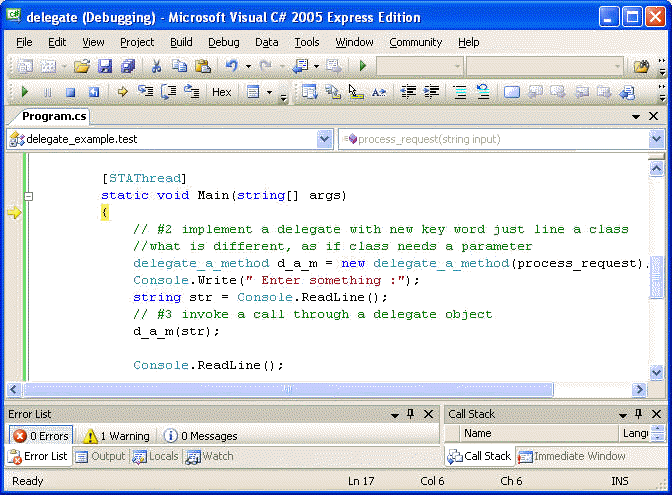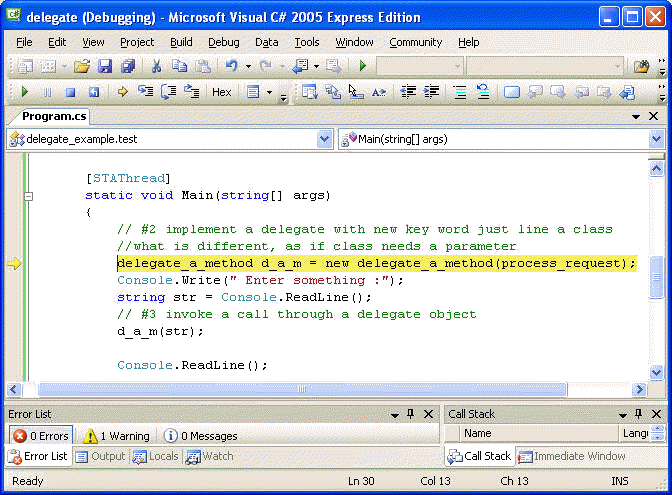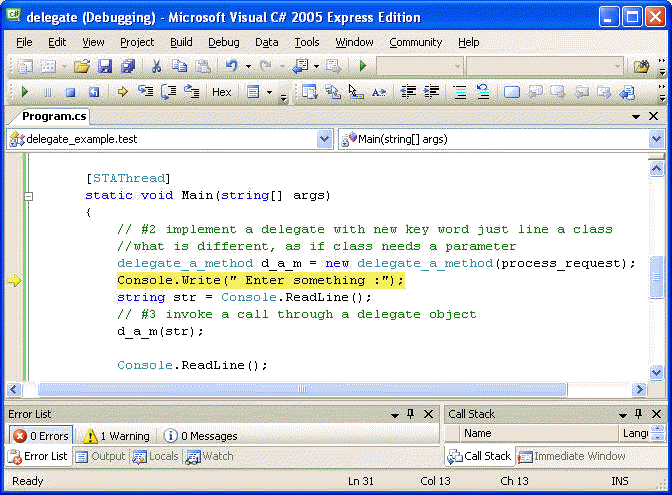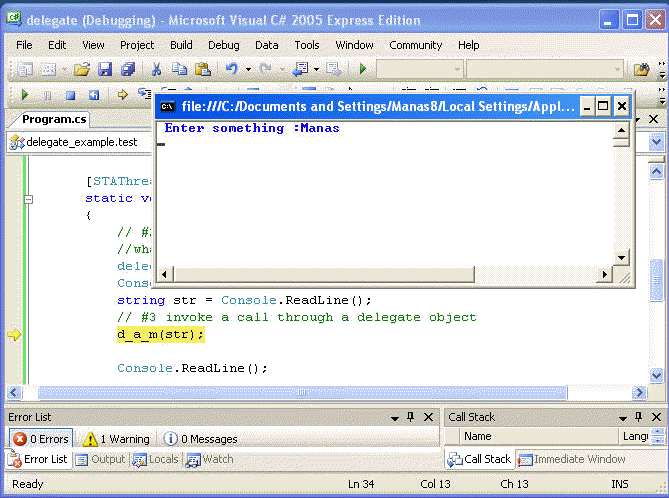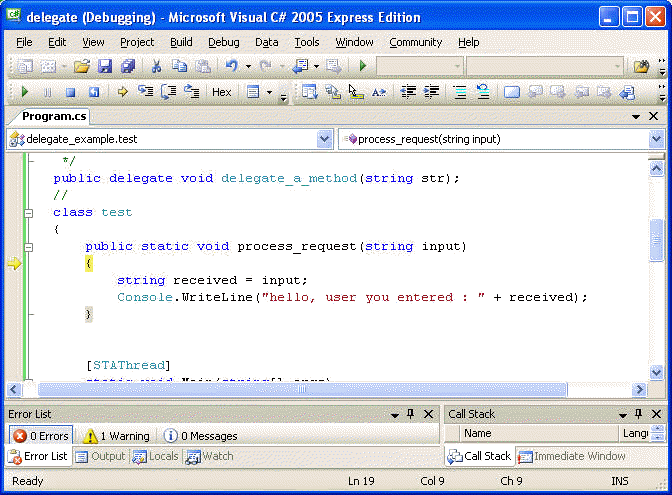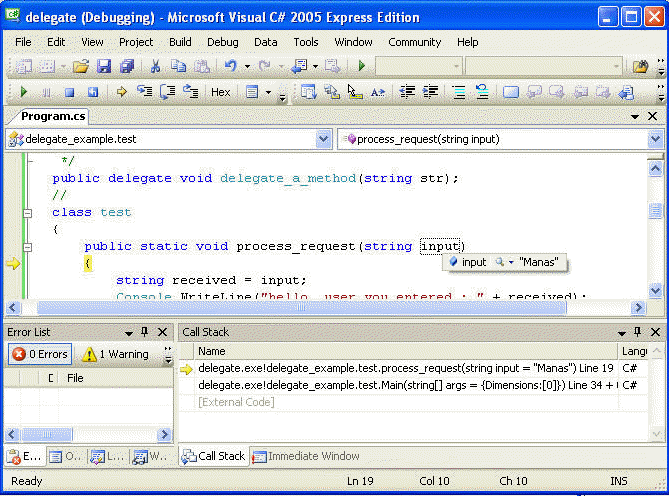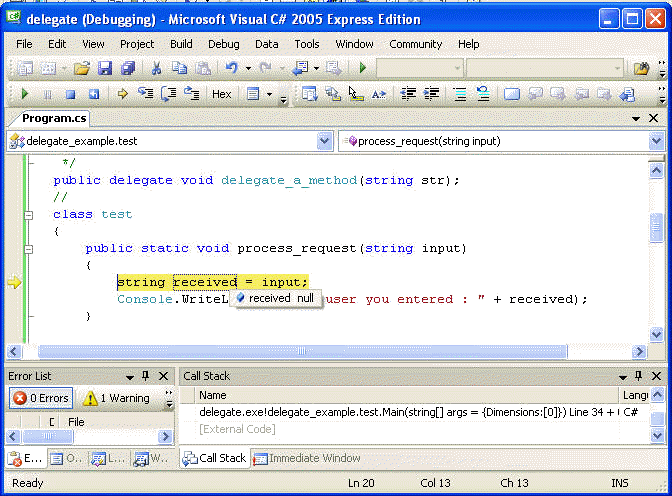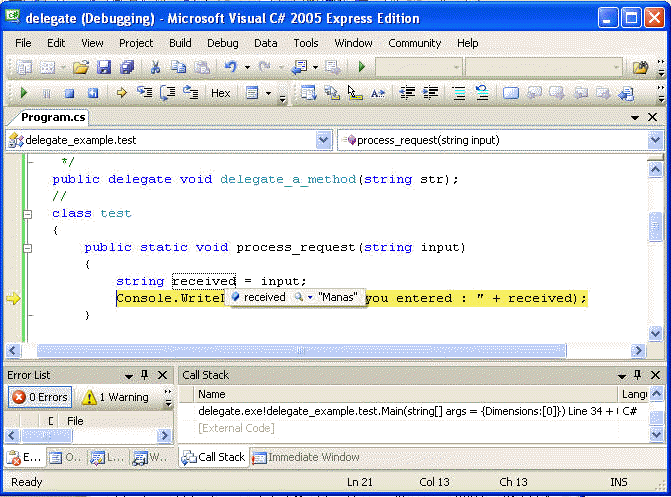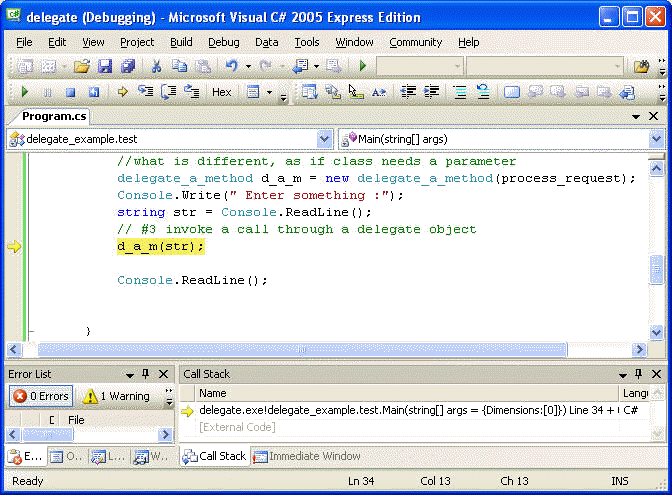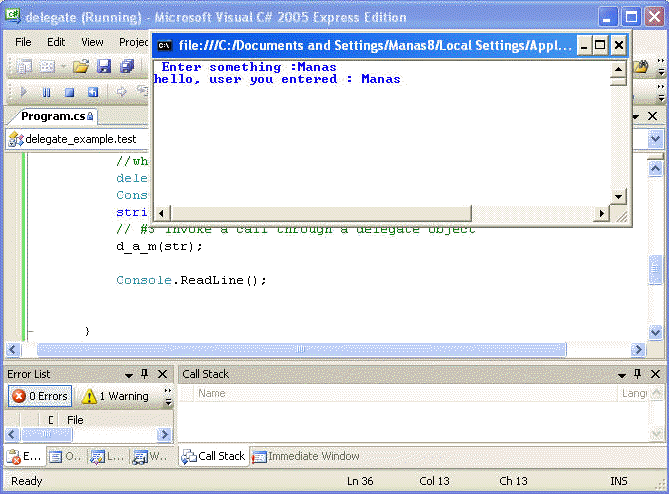-
A delegate in C# is used to encapsulate a method and very is similar to a function pointer in C or C++ (see how it works in C++ Link). The delegate keyword in C# when in the context to a method or variable, encapsulates a reference to a method inside a delegate object.
-
The delegate object can then be passed to code which can call the referenced method, without having to know at compile time which method will be invoked.
-
Unlike function pointers in C or C++, delegates are object-oriented, type-safe, and secure.
-
-
While using delegate, you are defining a
-
type of method you will be encapsulating
-
the return type
-
For a static methods, a delegate object encapsulates the method to be called. For instance methods, a delegate object encapsulates both an instance and a method on the instance. If you have a delegate object and an appropriate set of arguments, you can invoke the delegate with the arguments.
-
-
delegate grammars
-
delegate return-type identifier ([parameters]);
where:
- keyword delegate
- return-type: matches the return type of the function.
- identifier: The delegate name.
- parameters: The Parameters, that the function takes.
-
-
a delegate does not know or care about the class of the object that it references.
-
Any object will do; all that matters is that the method's argument types and return type match the delegate's. This makes delegates perfectly suited for "anonymous" invocation.
-
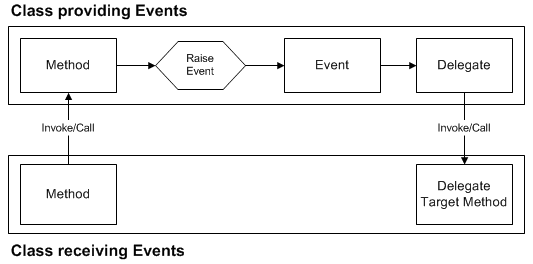
using System;
namespace testdelegate2
{
public delegate void helloworld();
class test
{
public static void method()
{
Console.WriteLine("hello, world!");
}
static void Main(string[] args)
{
helloworld dg = new helloworld(method);
dg();
Console.ReadLine();
}
}
}
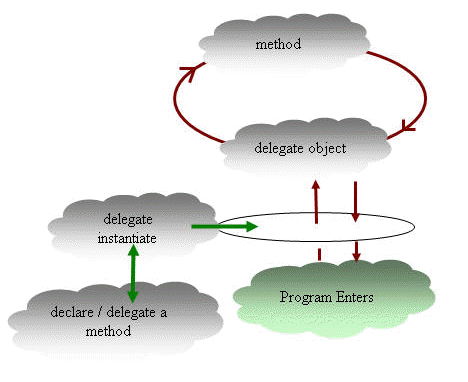
- that will not return any value to the caller and print something locally
- we really did not separate (encapsulate) out regiously.
using System;
using System.Collections.Generic;
using System.Text;
namespace delegate_example
{
// #1 delcare a delegate
/*
* use the keyword delegate
* name the method you will be encapsulating
* and its return type
*/
public delegate void delegate_a_method(string str);
//
class test
{
public static void process_request(string input)
{
string received = input;
Console.WriteLine("hello, user you entered : " + received);
}
[STAThread]
static void Main(string[] args)
{
// #2 implement a delegate with new key word just line a class
//what is different, as if class needs a parameter
delegate_a_method d_a_m = new delegate_a_method(process_request);
Console.Write(" Enter something :");
string str = Console.ReadLine();
// #3 invoke a call through a delegate object
d_a_m(str);
Console.ReadLine();
}
}
}
